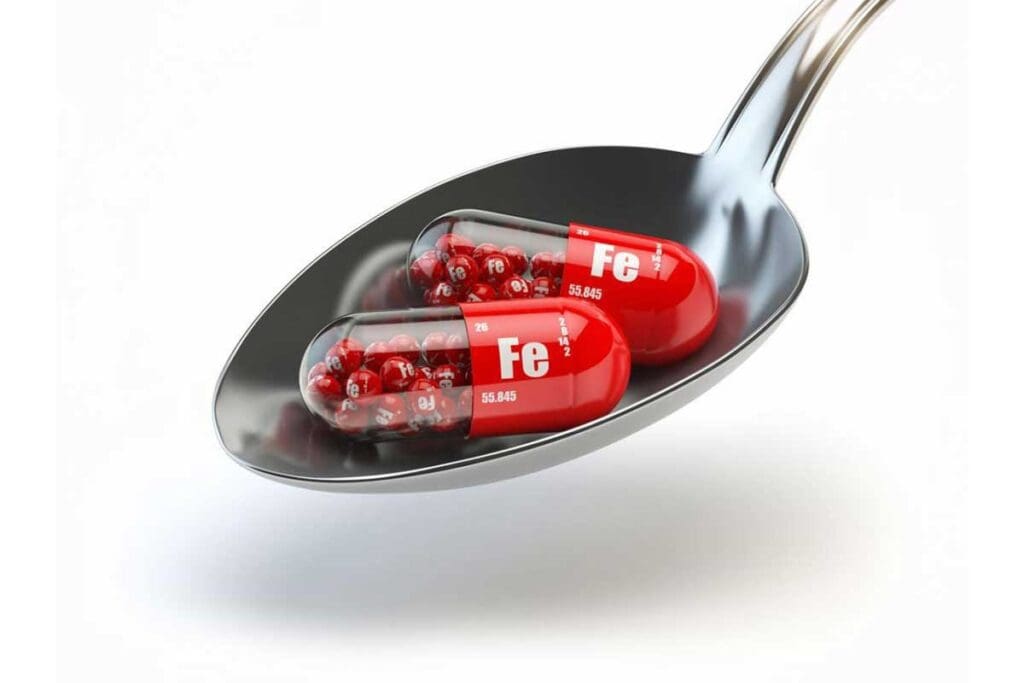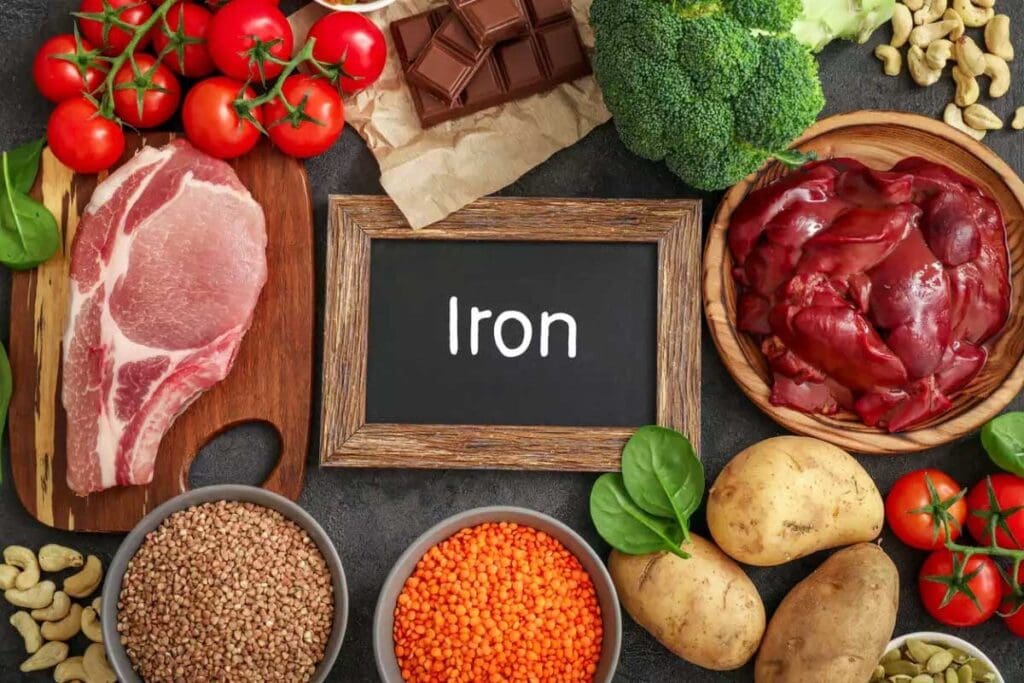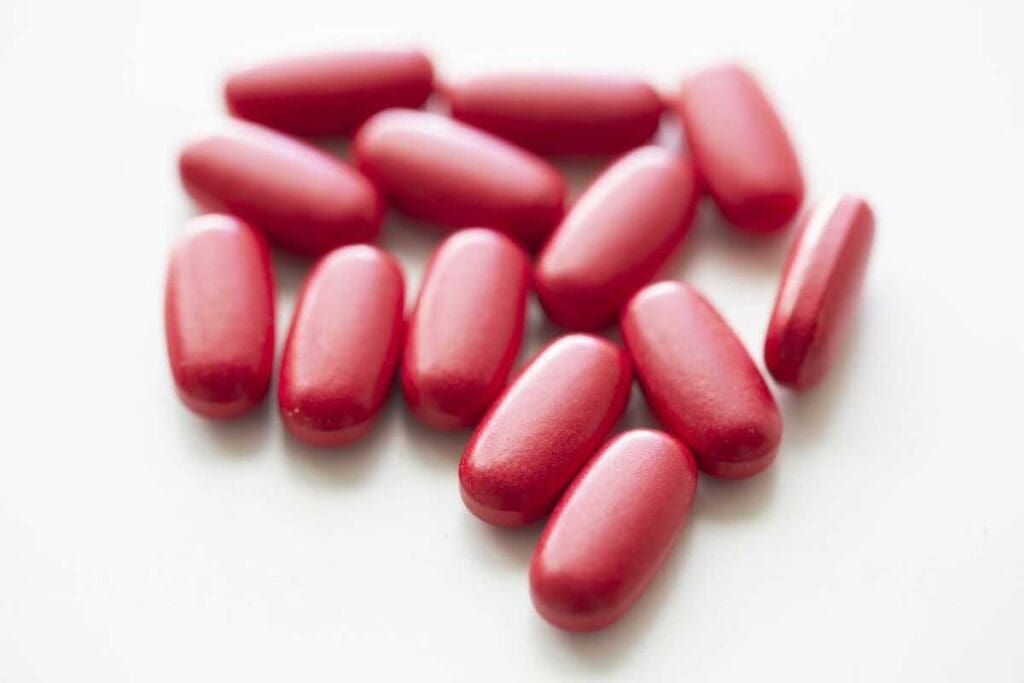
Knowing the right iron tablets dosage is key for good health. The amount of iron needed varies based on age, gender, and health status. Pregnant women often require more iron due to increased demands during pregnancy. At Liv Hospital, we help you determine the iron tablets dosage tailored to your specific health needs. Adults typically take 60 mg to 200 mg of iron daily. For example, ferrous sulfate is often prescribed as 200 mg tablets or drops containing 125 mg of ferrous sulfate per ml. Proper dosing is personalized to optimize treatment and minimize side effects.
Key Takeaways
- Iron supplement dosage varies based on individual health needs.
- Typical adult dosage ranges from 60 mg to 200 mg of elemental iron per day.
- Pregnant women may require higher iron doses.
- Understanding the correct dosage is key for effective supplementation.
- Liv Hospital offers personalized advice on safe and effective iron use.
Understanding Iron Supplements and Their Importance
Iron supplements come in many forms, each for different needs. This variety lets people pick the best one for their health.

Types of Iron Supplements Available
There are several iron supplements, like ferrous sulfate, iron bisglycinate, and liquid iron. Ferrous sulfate is very common and works well for iron deficiency. But, it might upset some stomachs.
Iron bisglycinate is gentler and better for those with stomach issues. Liquid iron is easy to take, great for kids or those who can’t swallow pills.
Why Proper Administration Matters for Absorption
How you take iron supplements is key for better absorption. Taking iron on an empty stomach helps, but it might not feel good for everyone. Drinking orange juice with iron supplements boosts absorption, thanks to vitamin C.
Knowing how to take iron supplements right can really help. By picking the right one and following the right steps, you can manage iron deficiency better and feel healthier.
Recommended Iron Tablets Dosage for Different Needs
To get the most from iron supplements, knowing the right amount is key. The dosage needed varies based on how much iron you lack and if you’re taking it to prevent or treat a deficiency.
Standard Dosage Ranges (60-200mg)
Adults usually take iron tablets in doses of 60mg to 200mg each day. A common dose for prevention is 200mg once a day. It’s important to stick to the recommended amount to avoid side effects. Kids need different doses based on their age and weight, so always check with a doctor.

Preventive vs. Treatment Dosages
Preventive doses are usually lower than treatment doses. For prevention, 200mg a day is often enough. But for treatment, you might need 2 to 3 times that amount, depending on your deficiency level. Always follow your doctor’s advice to treat effectively and safely.
How Many Iron Pills Can You Take a Day Safely
The safe daily amount of iron pills varies by person and doctor’s advice. Taking more than 200mg a day should be done under a doctor’s watch to avoid harm. Too much iron can cause iron overload, a serious health problem.
In summary, knowing the right dosage for iron tablets is vital for treating and preventing iron deficiency. Always talk to a healthcare provider to find the best dose for you.
Best Timing and Frequency for Taking Iron Supplements
To get the most out of iron supplements, knowing when and how often to take them is key. The timing and frequency of iron intake greatly affect its absorption and effectiveness.
Taking Iron on an Empty Stomach for Optimal Absorption
Iron is best absorbed when taken on an empty stomach, about an hour before eating. Taking iron on an empty stomach boosts absorption but might upset your stomach. If you feel nauseous or have stomach pain, try taking it with a light meal to ease these issues.
How Often Should You Take Iron Tablets
The frequency of iron tablets depends on your needs and the supplement type. Usually, they are taken once a day. But your doctor might suggest a different schedule based on your health.
Best Time of Day to Take Ferrous Sulfate
Ferrous sulfate is a common iron supplement. The best time to take ferrous sulfate is in the morning, on an empty stomach, for better absorption. If it bothers your stomach, you can take it with a small snack or meal.
| Iron Supplement Type | Recommended Timing | Frequency |
| Ferrous Sulfate | Morning, on an empty stomach | Once daily |
| Liquid Iron | Flexible, can be taken with or without food | As directed by the healthcare provider |
| Iron Tablets | 1 hour before a meal | Once daily |
Special Instructions for Liquid Iron Supplements
Liquid iron supplements are easier to take for those who struggle with tablets. When using liquid iron, follow the maker’s instructions for how much to take and when. You can usually take it with or without food, based on what you can handle.
Understanding the best timing and frequency for iron supplements helps you get the most out of them. This way, you can avoid side effects and make them more effective.
Maximizing Absorption and Minimizing Side Effects
To get the most out of your iron supplements, it’s key to know how to absorb iron well and avoid side effects. It’s all about balancing how your body takes in the iron and keeping side effects low.
Ferrous Sulfate and Orange Juice: The Vitamin C Connection
Vitamin C is important for better iron absorption, which is in supplements like ferrous sulfate. Drinking orange juice with your iron supplement can help a lot. Vitamin C makes iron easier for your body to use.
Foods and Medications That Interfere with Iron Absorption
Some foods and medicines can block iron absorption. It’s good to know which ones. Coffee, tea, and dairy can lower iron absorption. So, it’s best not to have them near when you take your iron.
Also, some medicines can mess with iron supplements. Always talk to your doctor about any medicines you’re on.
- Avoid taking iron supplements with coffee or tea.
- Separate dairy product consumption from iron supplement intake.
- Consult your healthcare provider about any drug interactions.
Managing Common Side Effects
Iron supplements are vital but can cause issues like constipation and stomach pain. It’s important to manage these side effects. More fiber can help with constipation, and taking it with food can ease stomach issues. If problems don’t go away, talk to your doctor.
Knowing how to absorb iron better and avoid side effects helps you get the most from your supplements. This ensures you get the iron you need for good health.
Conclusion: Creating Your Optimal Iron Supplementation Routine
Creating a good iron supplement routine means knowing the right amount and when to take it. For most people, 200 mg of iron supplements a day is a good start. It’s also key to understand how to take ferrous sulfate correctly to get the most out of it.
Timing is everything when it comes to iron supplements. Taking them with vitamin C can help your body absorb more iron. We suggest taking ferrous sulfate on an empty stomach or with something like orange juice. This can help you get the most iron and reduce side effects.
By following these tips, you can tailor an iron supplement plan that fits you. Remember, it’s always best to talk to your doctor about what’s right for you. They can help you find the best iron supplement plan for your needs.
FAQ
How many iron pills should I take a day?
The amount of iron pills you should take daily varies. It’s usually between 60mg and 200mg. Always talk to a doctor to find out what’s right for you.
How often should I take iron tablets?
How often you take iron tablets depends on your needs. Most people take them once a day. But, some might need to take them more often. Always listen to what your doctor says.
What is the best time to take ferrous sulfate?
Take ferrous sulfate on an empty stomach, about one to two hours before eating. If it upsets your stomach, you can take it with a little food.
Can I take iron supplements with orange juice?
Yes, you can take iron supplements with orange juice. The vitamin C in orange juice helps your body absorb iron better.
How do I take liquid iron supplements?
Follow the instructions on the label or what your doctor tells you. Usually, you take it by mouth and use a special measuring device.
Can ferrous sulfate cause diarrhea?
Yes, ferrous sulfate might cause diarrhea in some people. If you have diarrhea that won’t go away, talk to your doctor.
What foods interfere with iron absorption?
Foods like tea, coffee, milk, and some vegetables can make it harder for your body to absorb iron. Try to avoid these foods when you take your iron supplement.
How can I minimize side effects when taking iron supplements?
Start with a small dose and slowly increase it if needed. Taking iron with food might help with side effects, but it might also lower how much iron your body absorbs. Drinking plenty of water and eating a balanced diet can also help.
Is it safe to take 200mg of iron daily?
Taking 200mg of iron daily is safe for some people with severe iron deficiency or certain health conditions. But, it’s very important to follow your doctor’s advice to avoid taking too much iron, which can be harmful.
References
Dhingra, S., Goyal, A., & Saklani, S. (2023). Assessment of the efficacy of a low-dose iron supplement in women with iron deficiency without anemia. https://pmc.ncbi.nlm.nih.gov/articles/PMC10255632/









